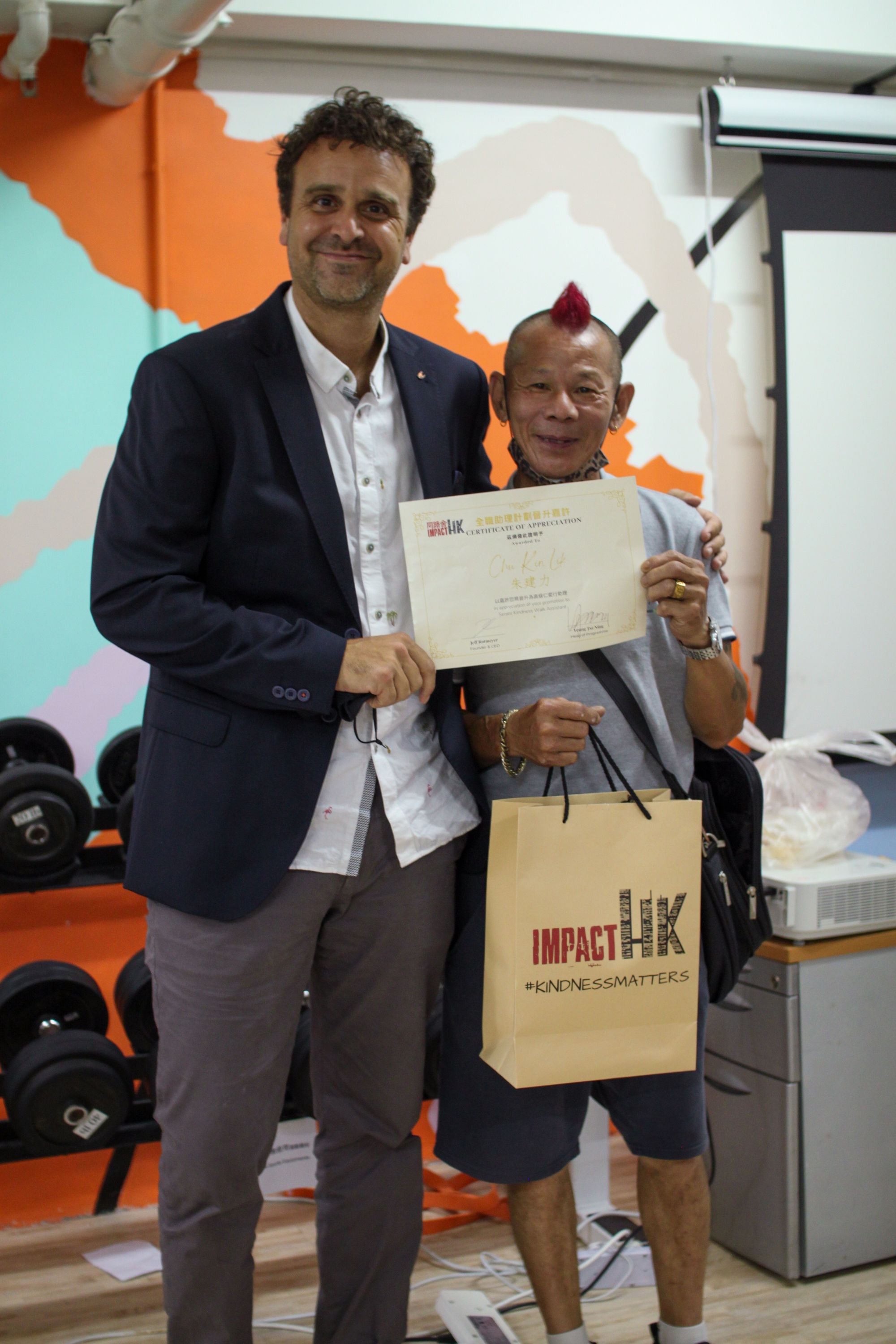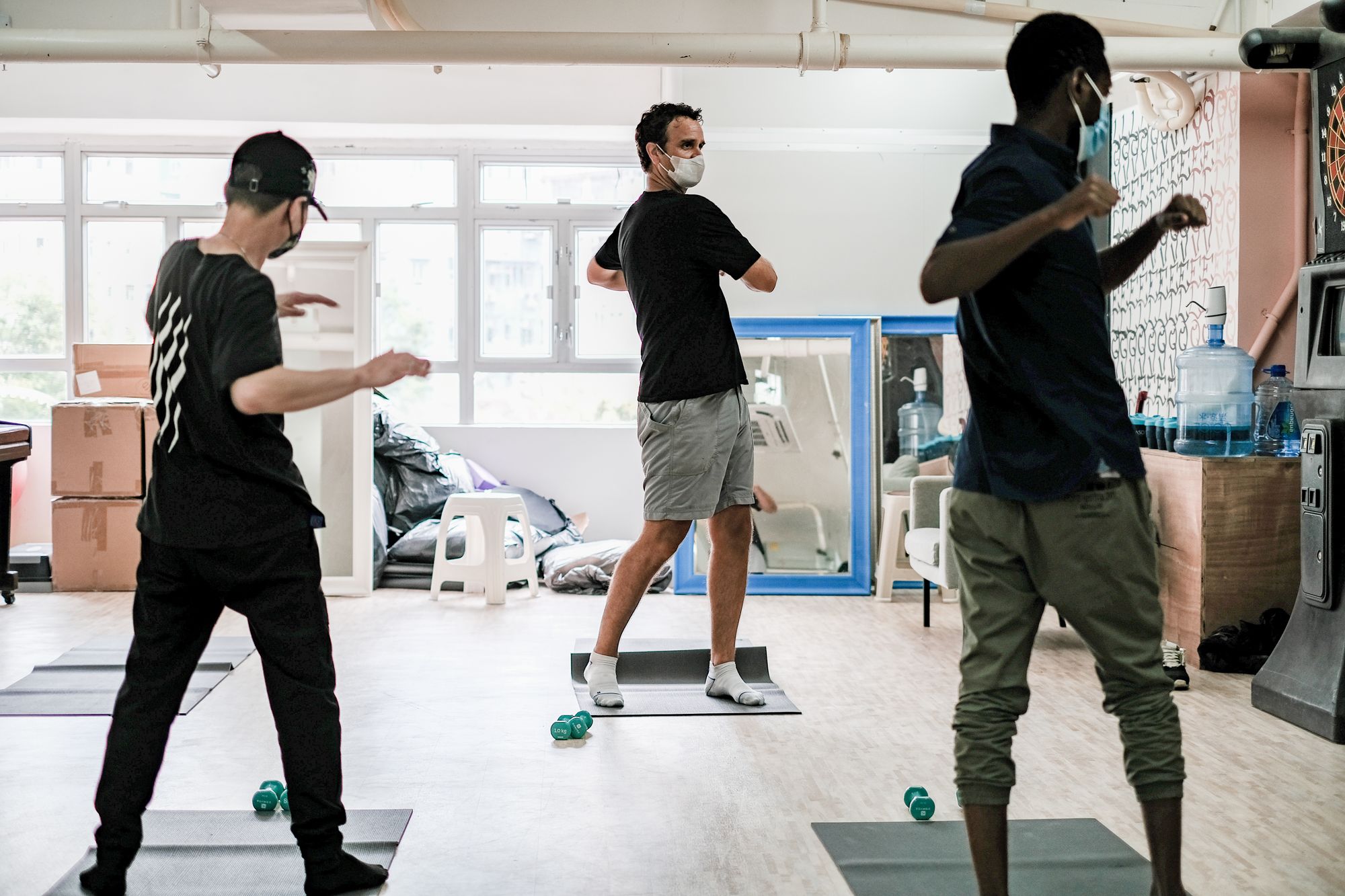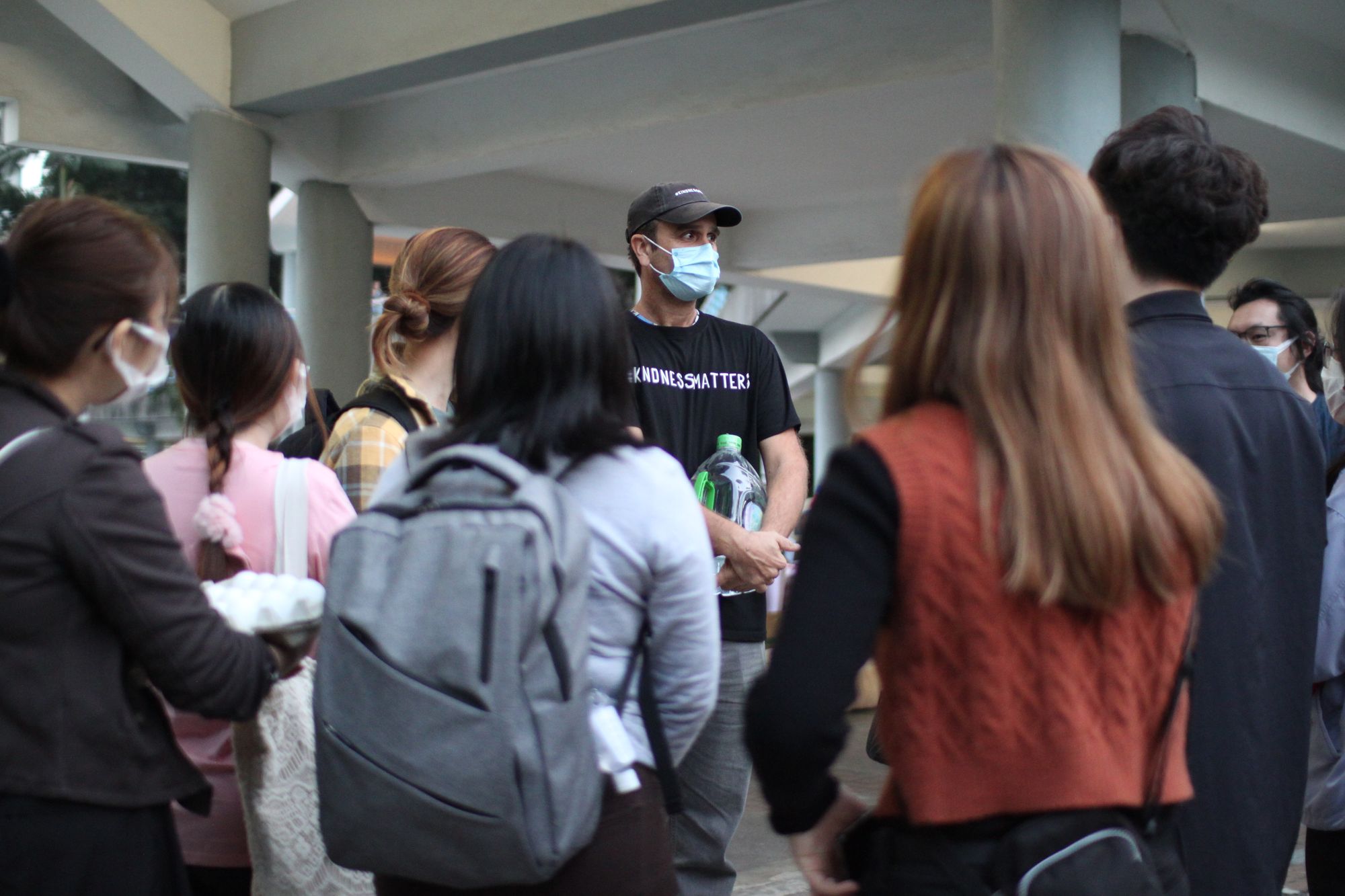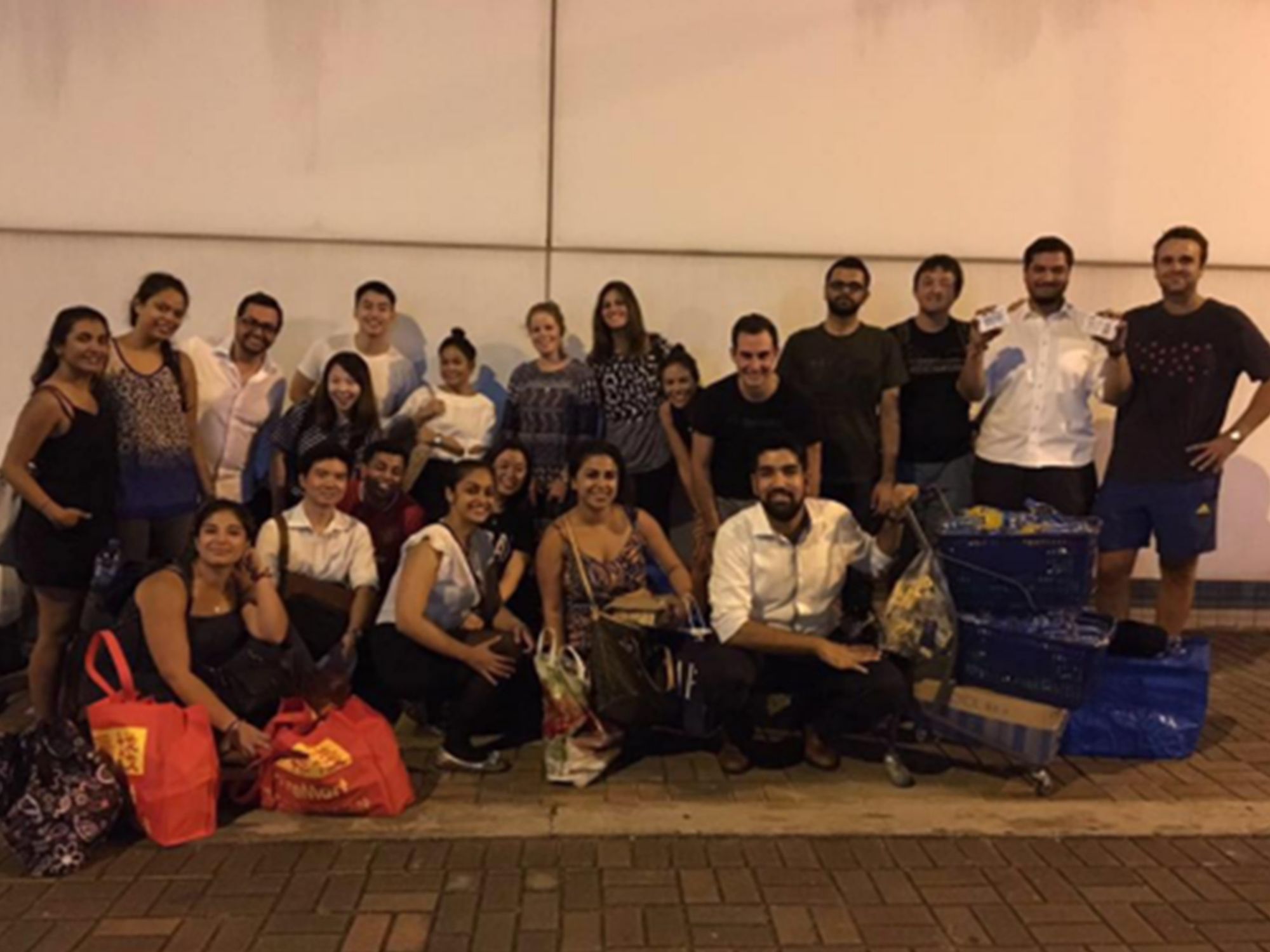If there is one person who could teach us all a lesson on humanitarianism and giving people equal chances, it would be Jeff Rotmeyer, CEO of Impact HK and Love 21 Foundation.
Welcome to the Spotlight series by TMS, where we highlight businesses and people around Hong Kong making waves. This week, we’re speaking with Jeff Rotmeyer, CEO of Impact HK and Love 21 Foundation.
If there is one person who could teach us all a lesson on humanitarianism and giving people equal chances, it would be Jeff Rotmeyer, CEO of Impact HK and Love 21 Foundation. Although altruism was always engrained in his DNA, he would never have imagined that he would embark on such a journey of charity and the extent of just how much good he would do for others.
Canadian-born Rotmeyer has made Hong Kong his home for the past 18 years and has now dedicated his life to transforming the lives of the homeless and neurodivergent. ImpactHK is dedicated to helping the homeless population of Hong Kong through inclusivity and integration. Rotmeyer’s other organization, Love 21 Foundation, helps the Down syndrome and autistic community through sports, nutrition and holistic programs.
Rotmeyer sat down with TMS to talk about his life and journey and how his devotion to supporting others has led him and his team to change the lives of so many.
An organic path toward helping others

Rotmeyer first came to Hong Kong from Vancouver as a primary school teacher, teaching English in the city. As he puts it so humbly: “[I] took some steps towards charity work, and it’s just been a beautiful ride. And now I’m founder and CEO of two beautiful charities here in Hong Kong.”
However, Rotmeyer’s experience with doing good for others didn’t just start in Hong Kong. He takes us back to one of his first jobs in Canada, where he was a basketball coach for youth at risk. This meant teenagers who did not come from fortunate backgrounds and who fell into the paths of gangs and drugs. “As a basketball coach, I learned a lot about how to use sport as a vehicle to earn trust with this community,” he says. He describes how basketball allowed him to build a relationship and trust with teenagers and congratulate them when they did well, harboring connection and kindness. It naturally placed him in a place where he could mentor and be a good friend.
When Rotmeyer moved to Hong Kong a few years later, he wanted to continue helping others. He first reached out to charities supporting ethnic minorities and asylum seekers to coach football. He was then introduced to the Down syndrome community and then, shortly after, the homeless community.
“I have always loved working with the youth, and I have always loved teaching,” he says. Working with primary school kids helped him gain an insight into the culture of Hong Kong. “I’m teaching, but I’m teaching in a different way,” he continues, talking about moving into charity work. “A big part of my job is in educating society now.”
Rooted in love

When asked how he would describe himself, he flashes a shy smile. “I dont know! I haven’t really thought about it,” he says. “I do know that I’ve got a big heart, you know; I do know that I care for people. And I think that my real passion and my fight is for people who are unfairly judged and unfairly treated in society. And really want to stand up for people.”
Although Rotmeyer can’t pinpoint when his altruism was sparked, he credits this streak to being supported by the people around him growing up – from his parents to his friends. His father, who was his football coach and role model, set an example for him to motivate and empower others. “Both of [my parents] gave me so much love and were both so, so sacrificial to doing whatever they could do to give me the best chances, and that love definitely helped me a lot in my life and to this day,” he reflects, gratefully. He further recalls that, as he matured, he felt a deep sense of gratitude for the opportunities that he was given in life. Working with those who were disadvantaged and seeing the difference he could make in their life simply snowballed into the work that he does today.
But are there any downsides to being as altruistic as he is? Rotmeyer says that he sometimes puts off doing work on himself and taking care of himself because he finds that he is more comfortable helping others. Putting others first was something that he seemed to have inherited from his mother. “My mum is somebody who always put herself last. She is hilarious, great sense of humor. Huge heart,” he says. “She’s just a really beautiful person.”
The magic of sports

Rotmeyer’s background in sports education has greatly influenced the way that his charities are run. He has made sure that both organizations have an extensive sports program. Love 21 Foundation holds over 300 sports classes a month, while ImpactHK holds five to six sports classes a day for the homeless community.
He has been working with the Down syndrome community for 16 years now and describes being introduced to the community as a “life-changing experience.” Prior to that introduction, he had never met anyone with Down syndrome in his life. The community taught him real kindness and vulnerability and how to use one's kindness and care to bring out the best in someone else. The foundation now hosts about 60 different types of activities, mainly through sports and dancing. “I am just so grateful for my experience in getting to know them,” he recollects. “Being with that community brought out the best in me.
“... With the homeless charity, most people, when they think of how do you help the homeless community, they don’t think about sport,” Rotmeyer says. Sport not only has several great physical and mental advantages, but it also gives people the opportunity to make friends and harbor a sense of community and structure. “Every Monday, they step into the week with goals, and they’re ready to attack,” he says.
A cold, hard city

Rotmeyer describes the life expectancy of a person with Down syndrome with a heavy heart, comparing the short lifespan with that of an average Hong Konger, who has one of the world’s longest. “A lot of the pain that they suffer is judgement from society,” he says. “We see families that really do not want to step out into society because of the judgment that they relive everyday.” In the case of the neurologically divergent community, the foundation helps family by family. It’s a slow process, but it isn’t one that comes without reward.
Love21 Foundation aims to provide a community that is accepting and loving. “We’re trying our best to get our community out there more,” Rotmeyers goes on excitedly, talking about integrating and giving them a voice. “We’re really out there, and we’re loud! We love to dance, and we love to sing, and we are really much needed in the city.
“It’s a hard city, it’s a tough city, and it has a lot of narratives that people use to justify not having to care for people. You see a lot of that. Whether it be for the homeless community ‘Oh, they’re lazy, they’re drug users, it’s their choice, it’s their fault,’” he says. And this is where education comes in. This is where it’s most important to step in and stand up for others.
When approaching a person who is experiencing homelessness, it takes gentleness and kindness. “You have to understand that you can’t just walk up to someone and save their life,” he says. “There is kind of a process to it. The key is really in making sure someone feels cared for.” This can come in the simplest of forms – through eye contact, through a smile or offering them a drink. The last way to go about things, in Rotmeyer’s opinion, is to force those in need to share their life with you simply because you have food in your hand.
When asked about what the block would be for individuals experiencing homelessness to seek help from the center, Rotmeyer replies: “I think it’s – Do they actually see any hope? Do they believe in themselves. Do they see any point in taking they step?… These are individuals who are in a lot of pain … In Hong Kong, you’re not seeing anger; you are seeing people who are beat and are defeated. And you see a lot of suppressed anger, and it’s been burried very, very deep.” He points out that it goes much deeper than simply offering a meal or a room to those individuals but needing to really connect from the heart. “It’s very difficult for a person to want to take that step,” he says.
Taking care of himself

As he’s mentioned, Rotmeyer is much more effective in helping others than himself. But we continued to press him on his projects on himself. When asked what he does when he isn’t working on his organizations, he mentions one of his loves – exercising and keeping fit. He feels the need to practice what he preaches, especially when providing so many physical fitness opportunities to friends of the charities.
Rotmeyer hopes that people take the time to learn more about these communities. Whether through donations or going out and volunteering. “Do what you can!” he says. “We’re just grateful for all the support we get, whether it be through a financial contribution, for people volunteering or by people spreading the word of how important it is to care for people in the city, especially through these trying times.”





Comments ()